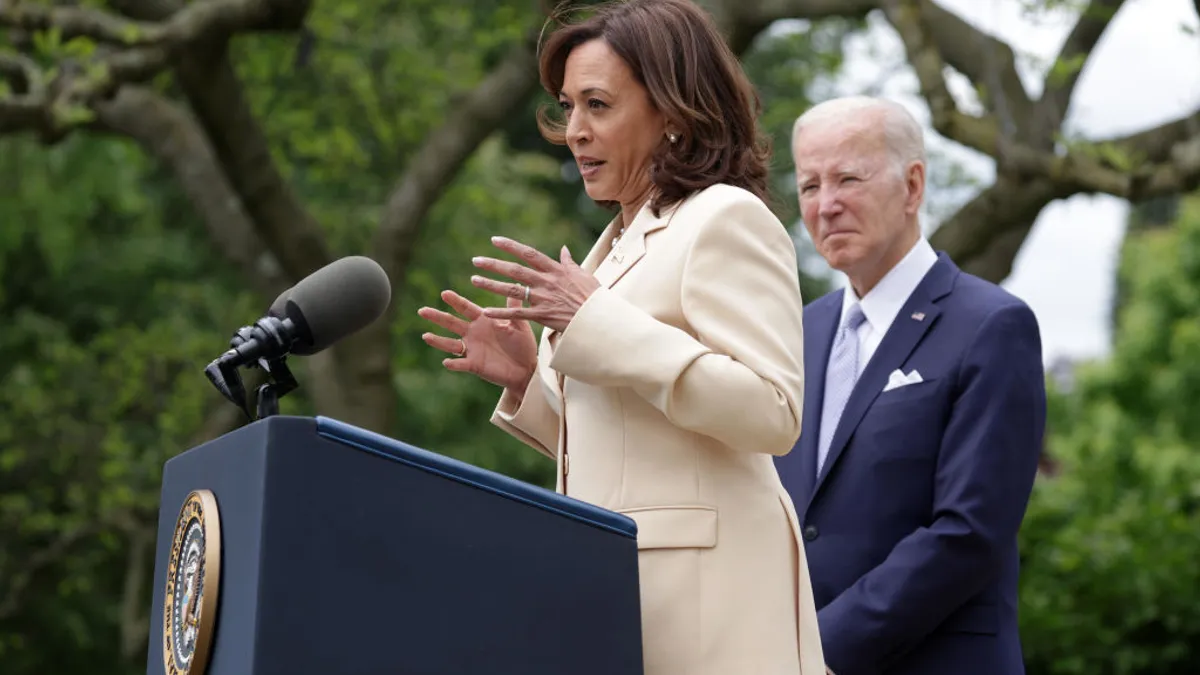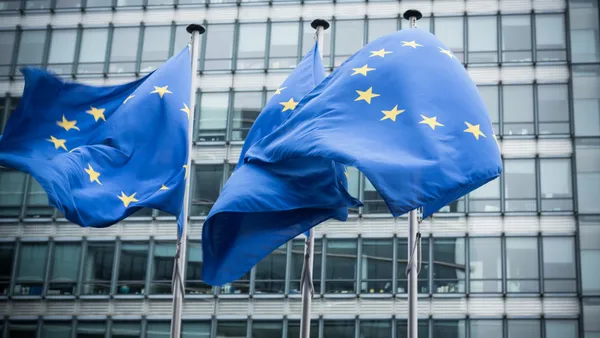Dive Brief:
- The White House convened a group of senior officials and technology industry executives Thursday to discuss the rise and ethical use of AI, the White House said.
- During the meeting, Vice President Kamala Harris emphasized the importance of fostering responsible, trustworthy and ethical innovation. CEOs from Alphabet, Microsoft, Anthropic and OpenAI joined Harris and other senior officials for a discussion.
- The White House also announced a public evaluation of AI systems, consistent with responsible disclosure principles, with commitments from several major AI companies including Anthropic, Google, Hugging Face, Microsoft and NVIDIA. The evaluation will take place at DEFCON 31 in Las Vegas this summer.
Dive Insight:
The Biden administration is committed to the safe adoption of technological innovations, such as advancing potential new regulations and supporting new legislation, Harris said in a statement following the meeting.
"As I shared today with CEOs of companies at the forefront of American AI innovation, the private sector has an ethical, moral and legal responsibility to ensure the safety and security of their products," Harris said. "And every company must comply with existing laws to protect the American people."
The meeting between White House officials and the top brass of AI innovation is the latest sign of the move to regulate AI, as the technology continues to evolve and its implications on work and life become clearer.
Lina Khan, chairwoman of the Federal Trade Commission, penned an op-ed in The New York Times calling for regulation over the technology, citing potential societal disruption.
"We once again find ourselves at a key decision point. Can we continue to be the home of world-leading technology without accepting race-to-the-bottom business models and monopolistic control that locks out higher quality products or the next big idea?" Khan asked. "Yes — if we make the right policy choices."
Ethical concerns over the implications of generative AI led some companies to enable new features within their platforms. Last month, OpenAI enabled users of ChatGPT's public model to turn off chat history and export their ChatGPT data to get a better understanding of what information ChatGPT stores. The move appeased Italian regulators' concern over privacy, leading Italy to lift its ban on the tool.
In March, more than 1,000 AI and technology experts signed a letter calling for AI labs to pause training on AI systems more powerful than GPT-4, a push to better understand potential risks before applications develop any further.
Alongside news of the meeting between AI executives and senior government officials, the White House announced the National Science Foundation will launch seven new National AI Research Institutes, fueled by $140 million in new funding.














